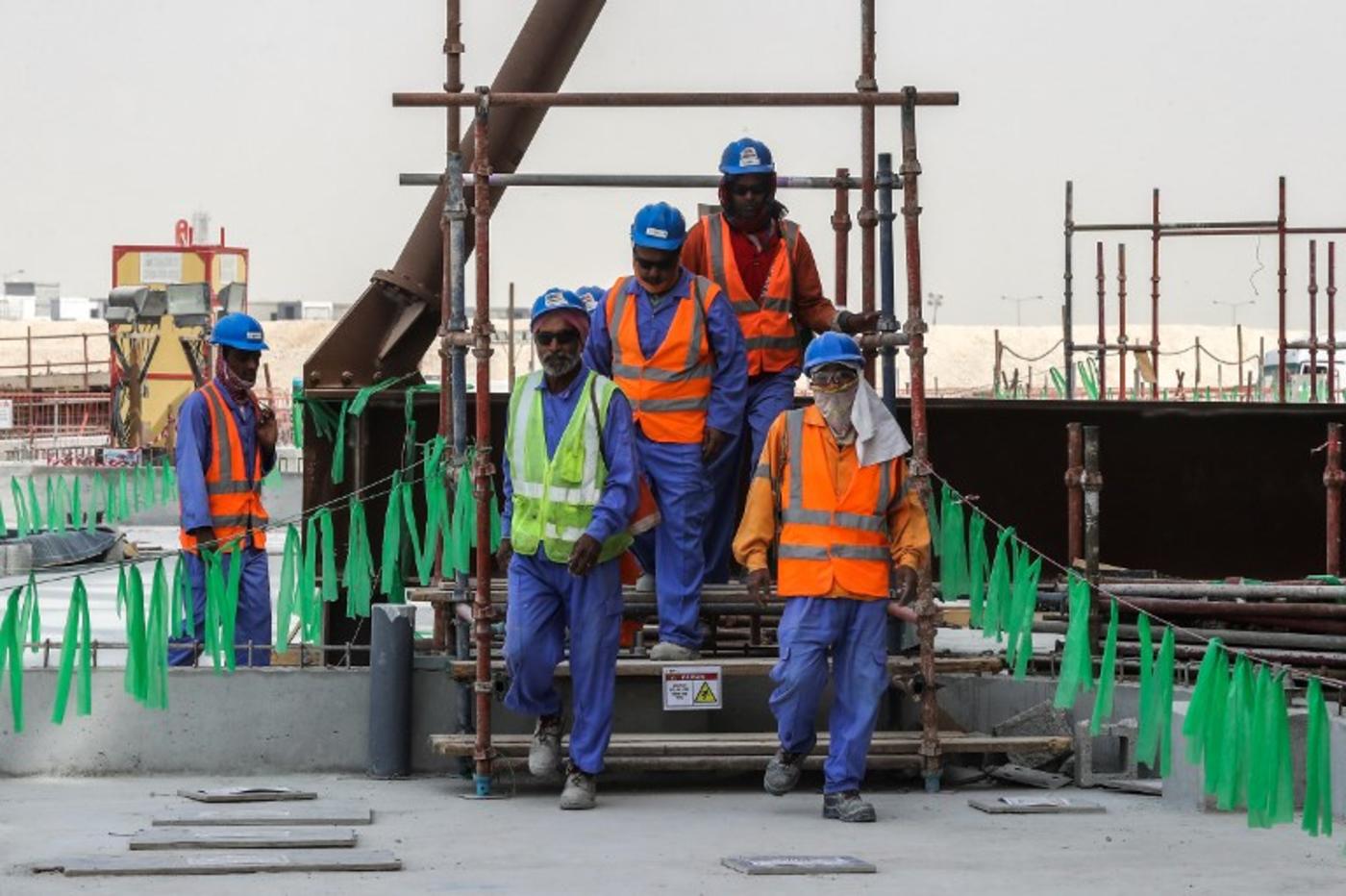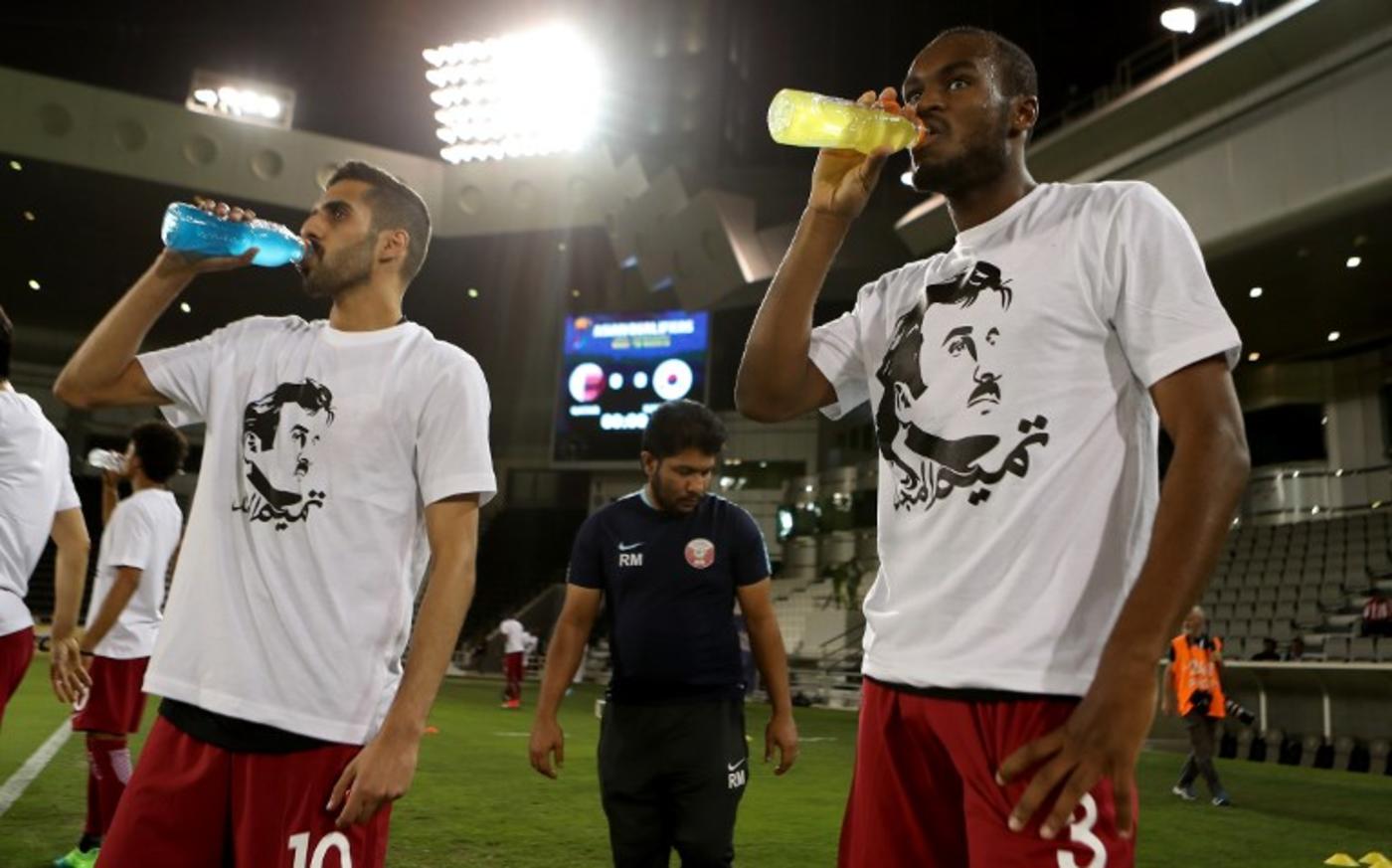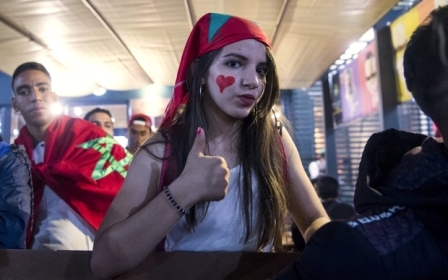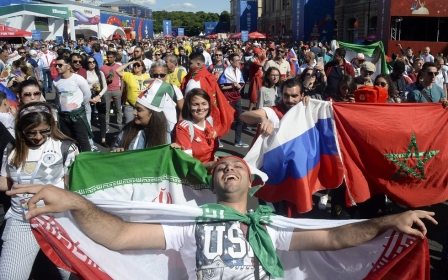Qatar World Cup 2022: Five things you need to know about football's next big event

The FIFA World Cup in Russia has been full of surprises. From Iran’s goalkeeper saving Ronaldo’s penalty, and Germany's early exit, to the host nation reaching the quarter-finals and the thrilling second half of Belgium versus Japan.
But as Russia 2018 comes to an end, many are now looking ahead to Qatar, the first tournament to take place in the region, which kicks off in November 2022.
Qatar is one of the world's smaller countries at 11,586 sq km, occupying a smaller area than the UK's Falkland Islands or the US state of Connecticut, and is certainly the smallest to host the 88-year-old tournament.
It will also be noteworthy for several other reasons.
New MEE newsletter: Jerusalem Dispatch
Sign up to get the latest insights and analysis on Israel-Palestine, alongside Turkey Unpacked and other MEE newsletters
1. Want to sit in an air-conditioned stadium?
Qatar has said it will build eight stadiums for its World Cup - each costing approximately $8bn to $10bn - with every one of them air-conditioned.
Qatar slashed the initial budget by 40 to 50 percent in April 2017 to promote "financial responsibility", according to Hassan al Thawadi, the Qatari official who heads the tournament's organising committee.
Some of its stadiums are winning architectural accolades. The Al-Rayyan stadium, for example, was awarded "stadium design of the year" by the World Stadium Congress in 2016, while its Ras Abu Aboud stadium in Doha will be made of modified shipping containers.
2. Welcome to the winter World Cup
Qatar 2022 will not be the first "winter World Cup" as some media observers have claimed: tournaments in southern hemisphere countries such as Uruguay (1930), Chile (1962) and South Africa (2010) have all been held during those countries' winter months, which usually fall during June, July and August.
But no tournament has taken place as late in the year as Qatar's, with the first match to play on 21 November and the final itself on 18 December, Qatar's national day.
The decision has been taken to avoid the country's boiling summer climate, when the mercury can hit the mid-40s, compared with an average of 25 degrees during December.
Already many European national leagues have indicated that they will reschedule to fit with the World Cup programme. In England, for example, one idea is to begin the 2022/23 Premier League season one month early in July, with a break at the end of the year to accommodate Qatar 2022.
3. The abuse of migrant workers
Qatar has faced high-profile and heavy criticism from human rights groups and NGOs over the treatment of migrant workers building its stadiums, who, it is alleged, have faced poor living conditions and long working hours in the desert heat.
The majority of workers powering Qatar's construction boom have come from south Asia: scores of workers have reportedly died from heart attacks as well as on-site accidents and falls.
To address these criticisms, Doha has signed several agreements and opened the Gulf region's first office for the International Labour Organisation, the UN agency which deals with labour issues. But critics have continued to voice concern about ongoing abuses while workers continuing to complain about unpaid wages among other issues.
4. What about alcohol?
World Cup football fans enjoyed their alcohol at Russia 2018, with some breweries unable to meet demand.
In Qatar, drinking alcohol in public places is a crime. But for the World Cup, Doha has agreed to set up “specific faraway places” for people to drink beer. It means football fans will only be able to drink alcohol in controlled sites that are an hour away from stadiums.
5. Sport's biggest event may get even bigger
The first World Cup, in 1930, featured just 13 teams. It rose to 16 teams in 1934, followed by 24 in 1982 and 32 in 1998.
FIFA has decided that 48 teams will compete in 2026, when the World Cup is scheduled to take place in North America, hosted by the United States, Canada, and Mexico. The number of matches will also increase from 64 to 80.
Qatari officials have also hinted at the prospect of introducing 48 teams for the 2022 World Cup, although this has yet to be confirmed at time of writing.
FIFA president Gianni Infantino has described the plan as an opportunity to make the World Cup “more inclusive”. But critics have described the move as “money grab and power grab" after FIFA's own research indicated that expected revenue would increase to $6bn if the tournament is expanded to 48 teams.
Regardless of the number of teams, one thing is certain: Qatar, as the host nation, will for the first time ever qualify for sport's biggest tournament.
This article is available in French on Middle East Eye French edition.
Middle East Eye delivers independent and unrivalled coverage and analysis of the Middle East, North Africa and beyond. To learn more about republishing this content and the associated fees, please fill out this form. More about MEE can be found here.










